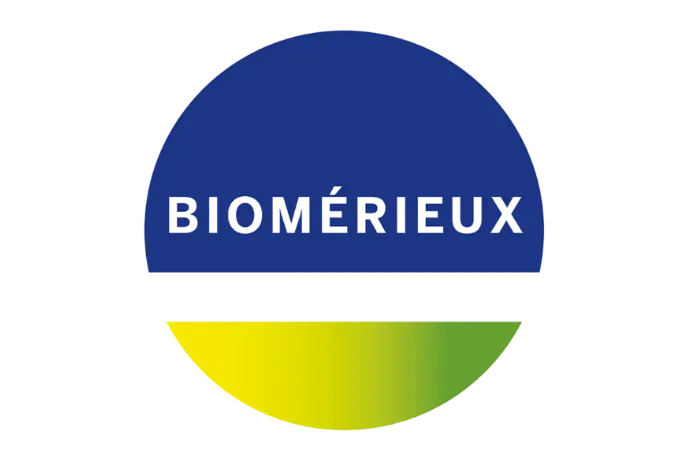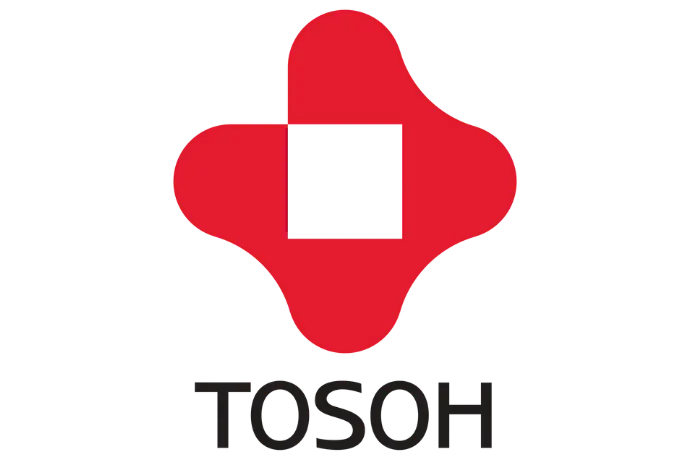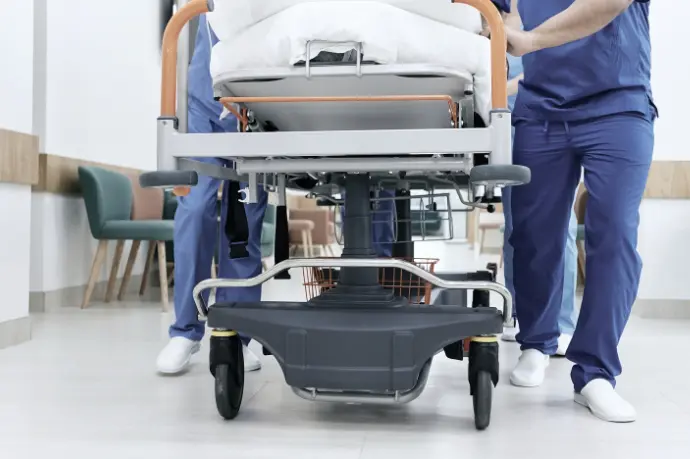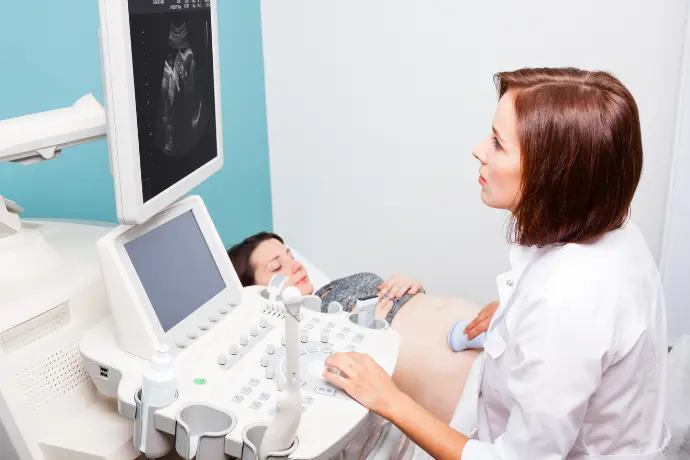
Immunoassay Analyzers
Run hormones, cardiac markers, and infectious disease testing in-house while cutting your immunoassay cost per test by up to 40%.



Same sensitivity and specificity at up to 60% lower cost than new
Reduce reagent costs up to 30% with competitive supply contracts
Get testing in weeks, not the 6-month wait for new systems
Nationwide service for every major immunoassay platform
Expand your test menu without expanding your budget
Trade in your old analyzer for credit toward better technology

Immunoassay Analyzers - Refurbished
View DetailsNew vs refurbished immunoassay analyzers - the truth about sensitivity
In most scenarios, that brand-new immunoassay analyzer uses the same photomultiplier tubes, the same magnetic particle separation, and the same detection chemistry as the refurbished model from three years ago. Antibody-antigen reactions haven't suddenly evolved. What has changed, other than the price?
Refurbished immunoassay analyzers deliver:

Identical analytical sensitivity (same pg/mL detection limits)

Same FDA-cleared methods and reagents

>30% cost savings versus new equipment

2-6 week delivery instead of 6-month factory queues

Full warranty and service support
New analyzers only make sense when:
You have to satisfy uninformed stakeholders
Grant funding specifically mandates new equipment
You're validating a completely novel assay
You're launching a new lab with unlimited capital
For most laboratories, refurbished immunoassay systems deliver everything needed at a price that preserves budget for growth.
Which immunoassay analyzer matches your testing needs?


Low to medium volume (20-100 tests per day)
Ideal models: Siemens IMMULITE 1000, Abbott Architect i1000SR, Roche Cobas e411
Compact systems that fit where you need them. Random access means you're not wasting expensive reagents on partial runs. Perfect for physician offices, urgent care centers, and small hospitals running thyroid panels, pregnancy tests, and basic cardiac markers.
Medium to high volume (100-500 tests per day)
Ideal models: Siemens IMMULITE 2000 XPi, Abbott Architect i2000SR, Beckman Access 2
The workhorses of hospital laboratories. These handle your morning thyroid panels, afternoon troponins, and evening STATs without missing a beat. Broad test menus cover 95% of immunoassay needs without requiring multiple platforms.


High volume operations (500+ tests per day)
Ideal models: Roche Cobas e601/e801, Abbott Alinity i, Siemens Centaur XPT, Beckman DxI 800
Maximum throughput for reference laboratories and large medical centers. But careful - unless you're actually running this volume, you're paying for capacity that sits idle. We'll analyze your actual test mix to right-size your investment.
Integrated chemistry/immunoassay systems
Ideal models: Roche Cobas 6000/8000, Abbott Accelerator a3600, Siemens Dimension Vista 1500
One sample, multiple disciplines. These integrated platforms eliminate split samples and reduce hands-on time. Perfect when you need both chemistry and immunoassay from the same specimen.
Immunoassay analyzer manufacturers and models we supply
Roche Diagnostics
- Cobas e series: e411, e601, e801 - electrochemiluminescence technology
- Cobas integrated: 4000, 6000, 8000 - combined chemistry/immunoassay
- Industry-leading sensitivity for cardiac and hormone testing
Abbott Laboratories
- Architect i series: i1000SR, i2000SR, i4000SR - proven chemiluminescence
- Abbott Alinity: Latest generation with improved throughput
- Comprehensive test menu including infectious disease and therapeutics
Siemens Healthineers
- IMMULITE series: 1000, 2000, 2000 XPi - reliable chemiluminescence
- Centaur series: CP, XP, XPT - high-volume workhorse systems
- Dimension Vista: Integrated chemistry/immunoassay platform
- Excellent turnaround times with broad menu
Beckman Coulter
- Beckman Access 2: Compact and reliable for smaller laboratories
- Beckman DxI series: 600, 800, 9000 - scalable immunoassay solutions
- Beckman UniCel DxI: Integrated platforms with chemistry
- Strong cardiac marker and reproductive health menus
QuidelOrtho
- VITROS series: 3600, 5600, XT 7600 - enhanced chemiluminescence
- Dry slide technology option for certain assays
- Excellent for blood bank and infectious disease testing
bioMérieux
- bioMerieux VIDAS series: VIDAS 3, mini VIDAS - fluorescence enzyme immunoassay
- VITEK ImmunoDiagnostic: Specialized testing platform
- Strong in infectious disease and emergency testing
Tosoh Bioscience
- AIA series: AIA-360, AIA-900, AIA-2000
- Compact systems with competitive reagent pricing
- Popular for thyroid and fertility testing
Mindray
- CL series: CL-900i, CL-1200i, CL-2000i
- Cost-effective chemiluminescence platforms
- Growing test menu with competitive pricing
Real costs of immunoassay testing - beyond the analyzer price
The reagent reality
Immunoassay reagents cost 5-10x more than chemistry reagents. That thyroid panel uses $8 of reagents versus $0.80 for a chemistry panel. Your analyzer choice directly impacts these ongoing costs.
How we reduce your reagent spend:
Competitive supply agreements save up to 50%
Very long expiration dates so less regent is lost
Hidden costs nobody mentions
Calibrator stability
Some platforms require daily calibration (expensive)
Reagent waste
On-board stability varies widely between systems
Control costs
Multi-level controls for every analyte add up
Maintenance reagents
Wash solutions, system fluids, waste management
Calculate your true cost per immunoassay test
(Equipment cost ÷ 5 years) + Annual service + Annual reagents + Annual controls + Annual calibrators ÷ Annual test volume = Real cost per test
Example for 200 immunoassays/day:
- New analyzer: $50,000 ÷ 5 = $10,000/year
- Service contract: $15,000/year
- Reagents: $180,000/year
- Controls/calibrators: $25,000/year
- Total annual cost: $230,000
- Cost per test: $3.15
Consider volume before insourcing
- Refurbished analyzer: $20,000 ÷ 5 = $4,000/year
- Block service: $14,000/year
- Block reagents: $140,000/year
- Controls/calibrators: $20,000/year
- Total annual cost: $174,000
- Cost per test: $2.38
Annual savings: $56,000. That's a full-time technologist with benefits.
Which tests should you run in-house vs send out?
Always run in-house (ROI under 6 months)
- TSH, Free T4, T3 - thyroid panels
- Troponin, BNP - cardiac markers
- hCG - pregnancy testing
- PSA, CEA - common tumor markers
- Ferritin, B12, Folate - nutritional markers
- Basic infectious disease (HIV, HCV, HBsAg)
Consider volume before insourcing
- Specialty hormones (cortisol, testosterone, estradiol)
- Drug testing (therapeutic monitoring)
- Autoimmune markers
- Specialty tumor markers
Usually better to send out
- Rare infectious disease serology
- Specialized autoimmune panels
- Research markers
- Ultra-low volume tests (less than 5/month)
Immunoassay analyzers by laboratory type
Hospital emergency departments
Speed matters more than menu breadth. You need troponin results in 20 minutes, not 2 hours. The Siemens Centaur XPT or Abbott Architect i2000SR deliver rapid turnaround for cardiac markers, D-dimer, and hCG. Refurbished systems provide identical turnaround times at up to 50% less cost.
Physician office laboratories
Limited space, limited budget, unlimited potential. A compact system like the IMMULITE 1000 or Cobas e411 brings thyroid testing, fertility panels, and basic markers in-house. Every test you keep is revenue retained.
Reference laboratories
Volume drives everything. High-throughput systems like the Cobas e801 or Beckman DxI 800 process thousands of samples daily. Our reagent contracts make your margins sustainable even with competitive pricing pressure.
Specialty clinics (OB/GYN, endocrinology, cardiology)
Focus on your specialty's specific markers. Fertility clinics need comprehensive hormone panels. Cardiology practices need rapid cardiac markers. We'll configure the right system with the right test menu for your specialty.
Urgent care centers
Random access is essential when you can't predict test mix. The Abbott i1000SR or Siemens IMMULITE 2000 handle whatever walks through the door - pregnancy tests to cardiac events - without waste.
Complete immunoassay analyzer packages - what's included
With every refurbished analyzer
- Fully refurbished system
- 6-month to 1-year warranty (model dependent)
- Professional installation and calibration
- Any documentation you require
Service that keeps you running
- Next-day response in most metropolitan areas
- Phone support with actual technicians
- Preventive maintenance that prevents problems
- Parts inventory maintained nationally
- Loaner equipment for extended repairs
Common mistakes when buying immunoassay analyzers
Choosing based on test menu alone
That 100-test menu sounds impressive until you realize you'll run 15 of them regularly. Focus on tests you'll actually perform, not theoretical capabilities.
Underestimating calibration costs
Daily calibration versus weekly makes a massive difference in operating costs. Factor calibrator expenses into your total cost calculations.
Forgetting about sample volume requirements
Pediatric samples are precious. If the analyzer needs 500 µL for a panel, you'll be sending out tests you should run in-house.
Ignoring reagent stability
Some platforms require you to discard opened reagents after 7 days. Others give you 28 days on-board stability. The difference? Thousands in wasted reagents annually.
Not considering integration needs
Your immunoassay analyzer needs to talk to your LIS and possibly your chemistry analyzer. Middleware might be necessary. Factor this into your decision.
Ready to expand your testing capabilities?
Stop sending out profitable tests. Stop paying premium prices for routine immunoassays. Your refurbished analyzer delivers identical results at half the cost.
Every day you delay is revenue lost to reference laboratories and patient satisfaction lost to slow turnaround times.
Your complete immunoassay partner since 1980. Equipment, reagents, service, support.
Frequently asked questions
about immunoassay analyzers
An immunoassay analyzer automates antibody-antigen reactions to measure hormones, proteins, drugs, and infectious disease markers in blood samples. These sophisticated instruments use various detection methods (chemiluminescence, fluorescence, electrochemiluminescence) to quantify analytes at extremely low concentrations - often picograms per milliliter.
Unlike chemistry analyzers that measure metabolites and enzymes, immunoassay systems detect specific proteins and hormones critical for diagnosing thyroid disorders, monitoring pregnancy, detecting cardiac events, and screening for infectious diseases.
With proper maintenance, expect 5-7 years of reliable operation. Many customers run refurbished systems for a decade. The core technology (photomultiplier tubes, incubators, fluidics) is remarkably stable when maintained properly.
CLIA (Chemiluminescence): Light emission from chemical reaction. Most common in automated systems. Excellent sensitivity.
ELISA (Enzyme-Linked): Color change from enzyme reaction. Often manual or semi-automated. Good for batching.
ECLIA (Electrochemiluminescence): Electrical stimulation creates light. Roche's technology. Superior sensitivity.
ELFA (Enzyme-Linked Fluorescent): Fluorescence detection. bioMérieux VIDAS. Rapid results.
All deliver clinically acceptable results. The choice depends on your volume, turnaround time needs, and test menu requirements.
Most immunoassay platforms are closed systems - you must use manufacturer reagents. However, we negotiate significant discounts (20-30% below list) through competitive supply agreements. Some platforms offer more flexibility with open channels.
Depends on your test volume and reagent stability. Most facilities maintain 4-6 weeks of inventory. We help establish par levels and can set up automatic reordering to prevent stockouts while minimizing waste from expiration.
All major immunoassay analyzers support bidirectional LIS communication. We assist with interface setup and provide the necessary connection specifications. Middleware may be needed for older LIS systems.
- Troponin: 15-20 minutes
- TSH: 20-25 minutes
- hCG: 15-20 minutes
- Comprehensive metabolic panel: 25-30 minutes
- Infectious disease markers: 30-45 minutes
Times vary by platform but refurbished analyzers match new equipment performance.
Share your current send-out logs and we'll analyze which platform offers the best menu coverage. Generally, 20+ tests daily justifies bringing testing in-house. We'll calculate specific ROI based on your volumes and reimbursement rates.
Compact systems like the IMMULITE 1000 or mini VIDAS handle 20-50 tests daily efficiently. Random access means no waste from partial runs. Perfect for smaller facilities that still want in-house capabilities.





















